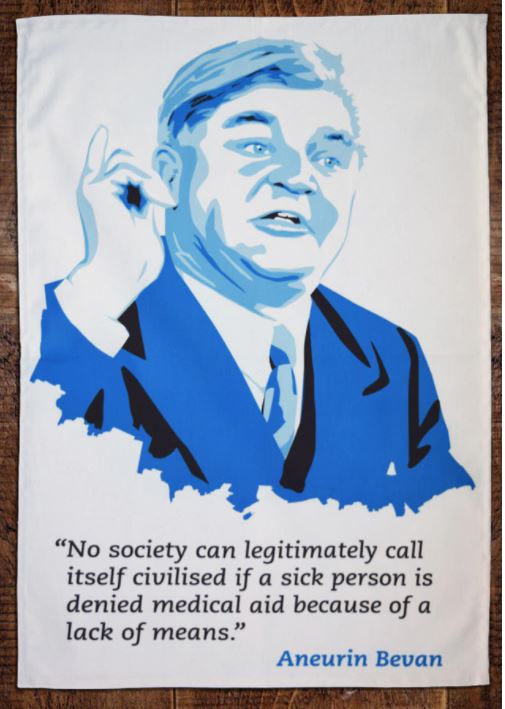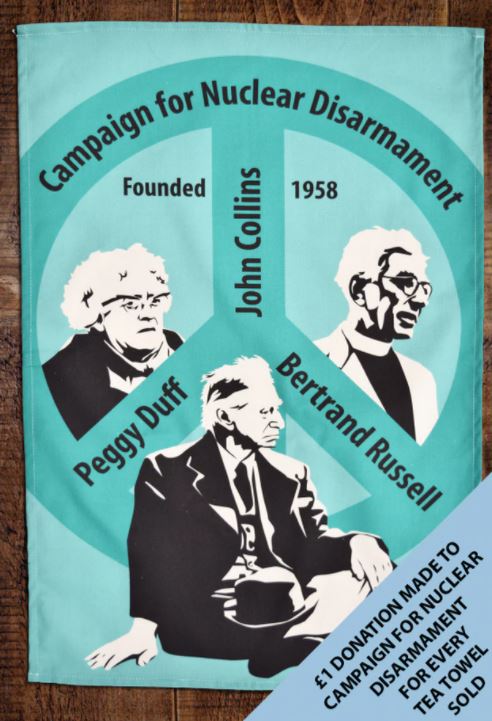Peggy Duff: A Life Well Lived
Posted by Pete on 8th Feb 2021
Born on this day in 1910, Peggy Duff devoted her life to international peace and the fight against everything which endangers it...
Noam Chomsky said of her that, "she should have won the Nobel Peace Prize about twenty times".
But you may well never have heard of Peggy Duff (1910-81).
Born into the suburban middle class of early-20th century Middlesex, Peggy grew up to become a driving force of the 20th century British Left.

A plaque devoted to Peggy Duff in Camden, London (Picture credit: Spudgun67)
She already stood out as “"very public-spirited" – code for radical, I expect – in secondary school.
By the late-1930s, Peggy, trained as a journalist, was part of the peace movement in Britain.
Driven by the creed of "never again" after the Great War, thousands of ordinary Britons like Peggy became involved in the Peace Pledge Union and League of Nations advocacy.
But Hitler and his fascist allies made this stance untenable, and “never again” gave way to the Second World War.
During WW2, Peggy, a socialist, joined the newly formed Common Wealth party, to the left of Labour. Looking to the post-war settlement, it advocated a more democratic, worker-led socialism than the Labour Party of Clement Attlee seemed willing to support.
Tragically, Peggy also lost her husband, Bill, who was shot down over Myanmar while flying with the US Air Force.
With the end of the war in 1945, Peggy Duff only intensified her commitment to the peace and socialist movements in the UK.
She joined the ‘Save Europe Now’ campaign of the radical publisher, Victor Gollancz, which, trying to overcome the national hatreds of the war years, sent aid packages to occupied Germany and Austria, where ordinary people were suffering severe food shortages.
In 1949, Peggy became business manager of Tribune magazine, an organ of the Labour Left then closely associated with the Welsh firebrand, Aneurin Bevan.

Click to view our Aneurin Bevan tea towel
‘Bevanites’ like Peggy saw in him an alternative to the Party’s mainstream, which seemed to have bought in to British foreign policy orthodoxies around empire and, especially, nuclear weapons.
Bevan denounced imperial adventures like the Suez War in much firmer terms than the Party leadership, and he was a vocal opponent of Britain’s nuclear deterrent (commissioned by Clement Attlee without the approval of Parliament). Those in the labour movement who actually supported peace saw in him a man they could trust.
This is why, when Nye Bevan abandoned his support for unilateral nuclear disarmament at the 1957 Labour Party Conference, Peggy, like thousands of his ardent supporters, felt betrayed.
She immediately joined with others like Bertrand Russell and JB Priestley to cofound the Campaign for Nuclear Disarmament (CND) in November 1957.
CND campaigned for Britain to:
"Renounce unconditionally the use or production of nuclear weapons and refuse to allow their use by others in her defence.”
Peggy was the group’s first Organising Secretary, orchestrating many of the early Aldermaston Marches.
Nuclear weapons were the great enemy of peace and human safety, which made them the great enemy of Peggy Duff also.
But CND didn’t take up all Peggy’s radical energies during the Sixties and Seventies.
In 1965, having become General Secretary of the Campaign, she also began work for the International Confederation for Disarmament and Peace.
In 1967, she quit the Labour Party altogether, once again angered by the foreign policy of its mainstream. Harold Wilson, then PM, had both given diplomatic support to the United States’ murderous war in Vietnam and refused to condemn a coup d’état in Greece by a coterie of fascistic Colonels.

Click to view our CND tea towel
It was the last straw for Peggy, she left Labour – poorer for her absence – on 10th May 1967.
Peggy Duff died in London on 16th April 1981. It had been a life well-lived, devoted to international peace and the fight against everything which endangers it.
But it has also been a life often forgotten.
Burrowed away in the vital work of organisation, not in front of the cameras, she was, "one of those heroes who is completely unknown, because she did too much."
So said Chomsky, so say I.
